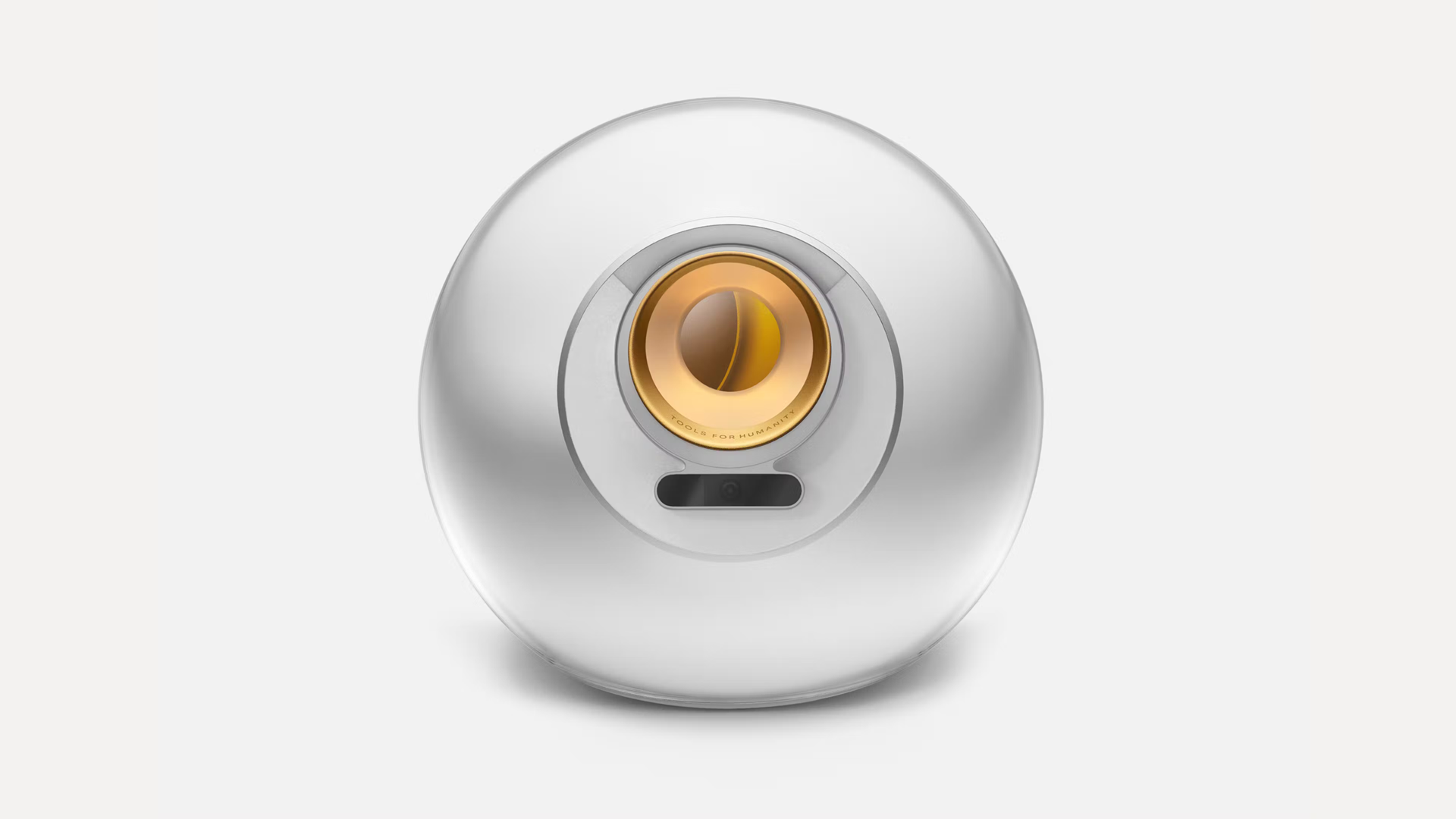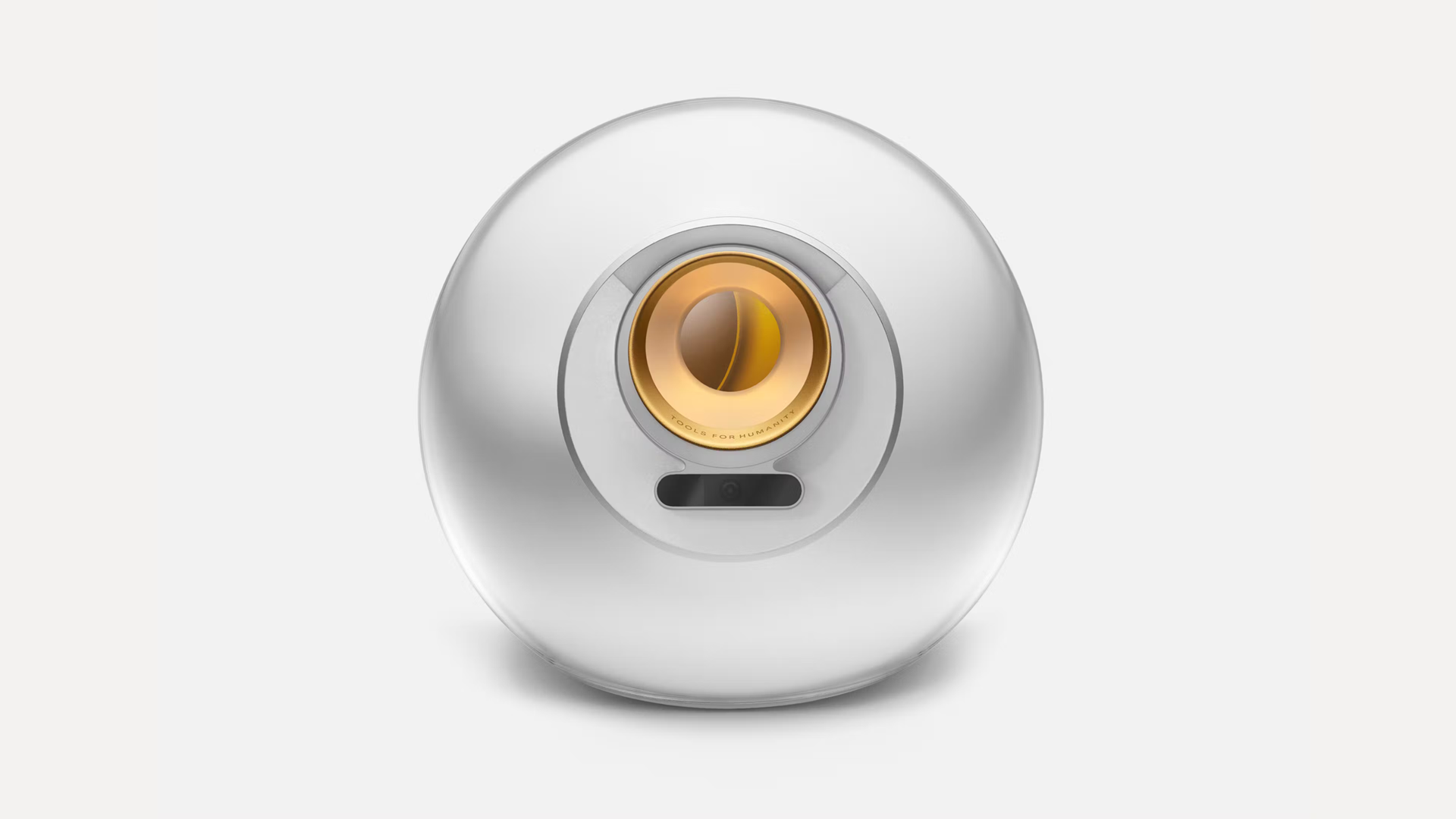
- Tools for Humanity, co-founded by Sam Altman, has launched a robotic human verification device
- The Orb Mini can scan irises and create blockchain-based World IDs
- The company is partnering with major brands to bring biometric IDs to finance, dating, and gaming
Staring into a small metal orb and hearing it confirm your humanity is a scene from many a dystopian science fiction story. It’s also an idea that OpenAI CEO Sam Altman thinks should be implemented in real life. That’s the idea behind biometric identity startup Tools for Humanity’s World system. World, formerly known as Worldcoin, is rolling out a portable iris scanner called the Orb Mini in the U.S. to carry out that directive in a way the company claims will benefit people.
The Orb Mini looks like something between a futuristic smartphone camera and a Black Mirror prop. The device scans your iris to confirm your humanity, creating a unique “World ID,” a blockchain-stored identity token that says, “this person is real and has irises to prove it.”
Sam Altman and company claim a lack of trust is one of the most urgent crises of the modern internet. Unspoken is Altman and OpenAI’s contribution to a world where AI can generate books, deepfake voices, and even realistically awful dating profiles with ease. Tools for Humanity is betting that the next evolution of the internet will require biometric proof that you’re actually a person, not just a particularly well-programmed AI model.
You may like
Human behavior
But it’s not just tech theatrics. Tools for Humanity has lined up some big-name partners to help bring the Orb Mini to everyone. Visa is working with World on a debit card connected to the World App, while Match Group is testing the technology in Japan to verify that the people you see on your dating app are both human and adult. Gaming hardware brand Razer is also exploring how to use World IDs to weed out bots from multiplayer sessions. After scanning your eye, Orb will provide you with a cryptographic identity to use for shopping, flirting, and gaming with other humans.
The company plans to roll out 7,500 Orb Mini devices across the U.S. by the end of the year. You’ll find them at pop-ups, partner company locations, and anywhere else they can get a kiosk to scan your face. The Orb Mini is designed to be portable, so it could go anywhere people with eyes go.
Of course, a company collecting and storing biometric data from millions of people sounds problematic. That’s because it is unless there are a lot of foolproof security systems for storing and accessing the data. Tools for Humanity says it has all that covered with anonymized data, as well as not storing iris images and other privacy-centered features. Still asking people to trust you with their eyeballs may be a big swing.
But, as AI-generated content floods social media and scams get more sophisticated, the appeal of ensuring you’re interacting with actual humans is understandable. A verified human internet is a nice idea, but there are a lot of questions about what it means to have to prove you’re real in a world where realism is becoming suspiciously easy to fake. Trusting that someone is human is tough online; trusting a company to always keep your identity safe is even tougher.
You might also like
Services Marketplace – Listings, Bookings & Reviews
